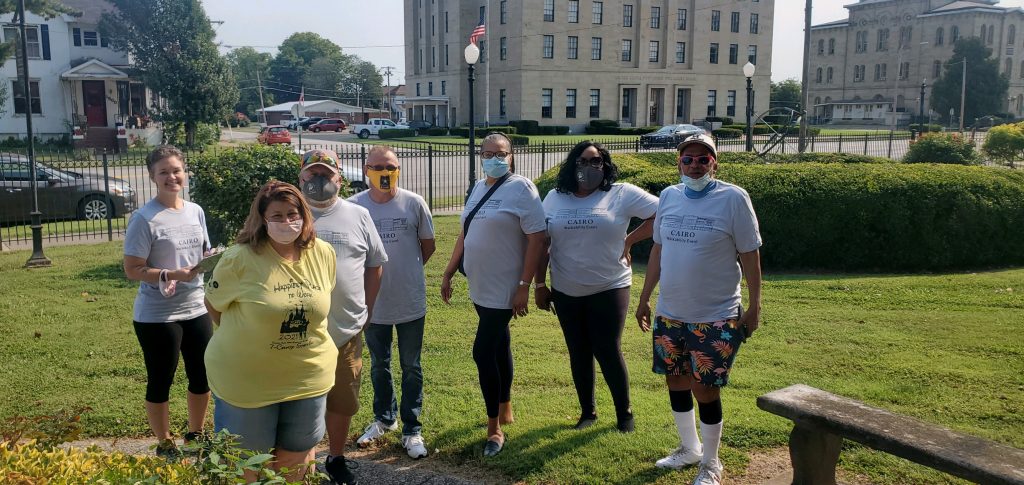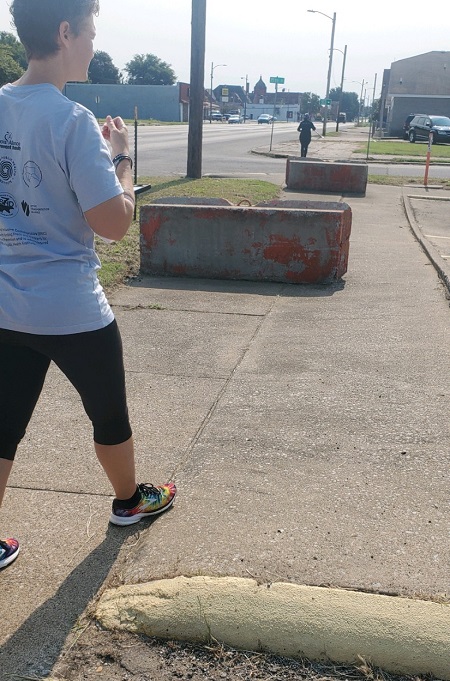Community members in Cairo, Illinois, and a local planning agency are taking a close look at how conditions in the town are helping or hindering local walking habits.
Recently, with help from Active Trans and the Southern Five Regional Planning District, a walkability evaluation was conducted in this far Southern Illinois town of about 1,700 people.
During the event, planning staff fanned out with notepads and cameras to document the walking conditions and infrastructure. There was also a short walk and a discussion that community members participated in.
Their results will be passed along to local leaders who will use the information to design spaces that are safer and more inviting for people walking.
HOW DO YOU EVALUATE WALKABILITY?
A walkable community connects neighbors, improves public health, and enables people to access jobs and services.
Good sidewalks and safe intersections make independent living easier for youth, elderly people, and people with disabilities.
Information gleaned from a community walkability event like the one in Cairo can help make a strong case for creating a better place to live.
When judging walkability, what do people typically look at?
- Are crosswalks present and visible?
- Are there sidewalks and are they in good condition?
- Are there sidewalk ramps for people using wheelchairs or other mobility aids?
- Is vegetation trimmed to allow easy passage and a pleasant environment?
- Does fast moving traffic make the route feel unsafe?
If you want to learn more about assessing walkability in your community, here’s a quick introduction to the topic from Mark Fenton, a walkability expert who Active Trans has worked with over the years.
BOOSTING WALKABILITY IN SOUTHERN ILLINOIS
Making walking safe and easy is particularly important in a low-income community like Cairo, where people are more likely to walk for transportation.
The Cairo walkability event was supported by a federal program called Building Resilient Inclusive Communities (BRIC), which is focused on reducing health inequities through physical activity, nutrition, and community connections.
Funded by the Centers for Disease Control and Prevention and administered by the Illinois Public Health Institute, BRIC has also enlisted Active Trans to provide technical assistance in East St. Louis.

Photos of the Cairo walkability event courtesy of Illinois’ Southern Five Regional Planning Commission.

